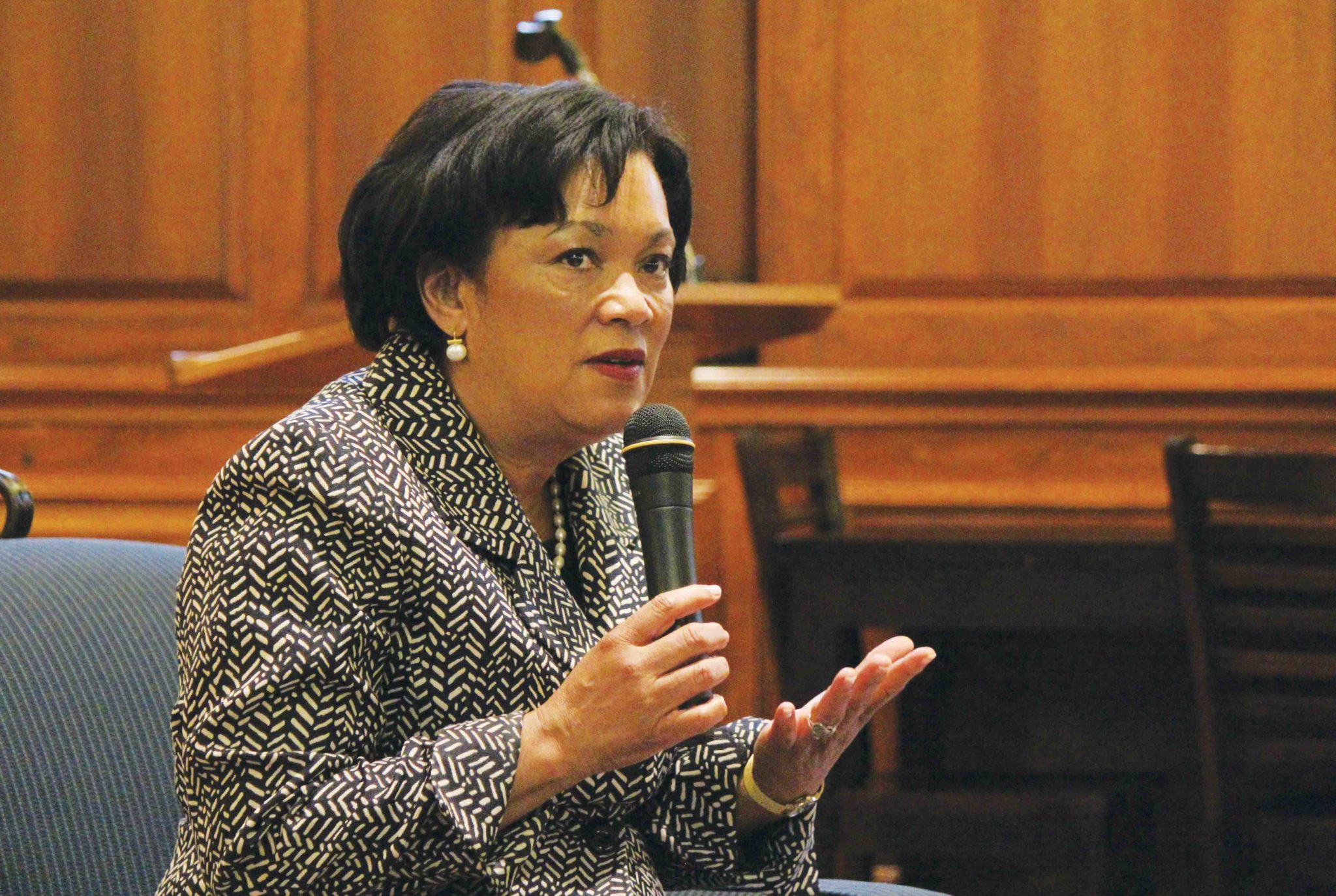
In the upcoming months, New Haven’s political scene will be enveloped by the most competitive mayoral race since 2013.
Currently, the Democratic field includes current Mayor Toni Harp, who is seeking a fourth consecutive term and former New Haven alder and current executive director of the New Haven Land Trust Justin Elicker FES ’10 SOM ’10. But the 2019 race is not the first time the two will fight for the city’s top office — in 2013, seeking to replace then-mayor John DeStefano after 20 years at the helm of the Elm City, the two duked it out for their party nomination and then again in the primary. Now — alongside two other contenders Wendy Hamilton and Urn Pendragon — Harp and Elicker are heading into a heated rematch that will come to a head during the September primary.
“[Party] endorsement or not — in our cities that are Democratic — you can get away with not having the party endorsement,” Gage Frank, Elicker’s campaign manager told the News. “I really do feel that people are ready for change.”
Six years ago, Elicker and Harp were the two candidates that emerged from a vast initial pool. Elicker lost to the veteran of the state senate twice: once in the primary nomination and then again as an Independent in the general election by roughly 1,800 votes. Elicker participated in the city’s public financing initiative, the Democracy Fund, in 2013 and is currently doing so again.
Harp has not faced a realistic challenger since Elicker’s run, easily taking out her challengers in the past two election cycles. In 2017, her opponent Marcus Paca stopped campaigning in the general election, and Harp cruised to the win with 73 percent of the vote.
This time around, Elicker was the first to enter the race in January. And in the first fundraising quarter, which ended on March 31, Elicker out-raised Harp by more than four times. He claimed that the sums reflected a desire for change in the city and told the News that the funds will allow the campaign to run smoothly during the critical months of late summer.
Harp, who raised $26,042 over the course of four major events, did not host wide-scale fundraising events in the reporting period. Instead, she told the News she was pleased with the outcome given the limited time her team spent fundraising after announcing her reelection bid on Feb. 14.
Harp held a major kickoff event earlier this month and told the News that she intends, “to continue raising money” and mount a “vigorous campaign” in the race.
Moving forward, potential voters will witness a number of city processes. The Mayor’s Proposed Budget, which Harp submitted on March 1 for the fiscal year beginning in July, is currently under debate by the city’s Board of Alders. Last summer, Harp’s administration opted for a historic debt restructuring as the Elm City has faced a budget crisis, struggling to come up with viable sources of revenue.
Elicker has made fiscal responsibility a primary point of his candidacy, penning an op-ed in the New Haven Register last week that painted himself as committed to accountability and transparency in spending.
Jonathan Wharton, professor of political science at Southern Connecticut State University, told the News that he did not know what to expect for this election and campaign season, but that the progress and outcome of budget negotiations might factor into voters’ opinions.
The election will also be colored by the question of campaign finance and transparency. On March 7, Elicker filed a complaint with the State Elections Enforcement Commission alleging violations by Harp’s 2017 campaign, including missing donor reports totaling approximately $93,000 dollars.
The commission has since opened an investigation into Harp’s 2017 campaign. Although there is no specific timeline for the investigation’s conclusion, Harp told the News earlier this month that her staff has already begun preparing the missing documents.
“That’s all been just about finished writing it out,” Harp told the News. “[The public will] be able to see it soon.”
Harp has made the cornerstone of her campaign her accomplishments in office. Though she has faced some scrutiny during her current term, she emphasized the services her administration has provided to the city since she took office in 2014.
Elicker has emphasized transparency on the campaign trail. But Wharton believes that the major question of this election cycle is turnout. Turnout in the mayoral primary, which in a longtime Democratic stronghold like New Haven essentially determines the general election outcome, has historically been low. The general election is usually not much higher — hovering around a fifth of eligible voters.
“I’ll be hopeful and say that we might get around 25 percent in the primary,” Wharton said. “And if Elicker does run for the general, it might be a little higher. I don’t know.”
The mayoral candidates will face off in debates in West Rock on May 15 beginning at 7 p.m and at the Celentano School on May 22 at 6 p.m. The Democratic party will announce their official endorsement on July 24, and the primary election will take place on Sept. 10.
Angela Xiao | angela.xiao@yale.edu







